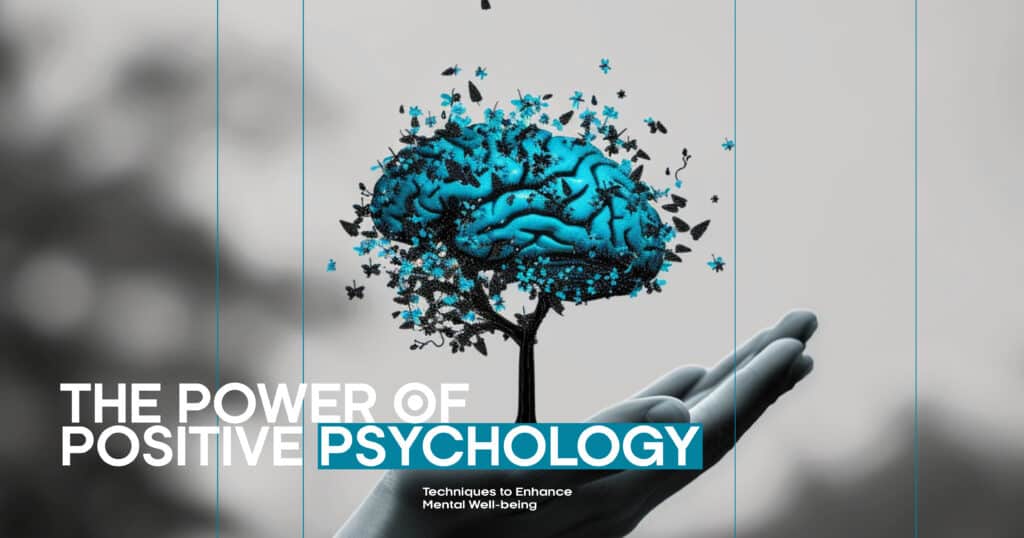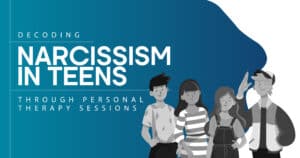In today’s fast-paced world, it’s easy to get bogged down by stress, negativity, and the demands of daily life. However, a powerful tool at our disposal can transform our mental well-being: positive psychology.
Essential Takeaways
- Tailor Techniques to Your Needs: Experiment with various positive psychology techniques like gratitude, mindfulness, and affirmations to find what best enhances your well-being.
- Consistency Matters: Regularly practicing positive psychology techniques is crucial for lasting improvements in mood, life satisfaction, and overall subjective well-being.
- Combine with Professional Support: Use positive psychology techniques alongside behavioral therapy and other forms of professional mental health care for a well-rounded approach to enhancing your well-being.
This approach focuses on cultivating positive emotions, well-being, and a more fulfilling life by leveraging the positive aspects of the subjective experience. In this guide, we’ll explore the core techniques of positive psychology, how to apply them in everyday life, and the profound benefits they offer.
Understanding Positive Psychology
What is Positive Psychology?
Positive psychology is a branch of psychology that emphasizes the scientific study and cultivation of positive emotions, strengths, and psychological well-being. Unlike traditional psychology, which often focuses on diagnosing and treating mental illness, positive psychology aims to enhance the overall quality of life. It seeks to understand what makes life worth living and how we can foster greater happiness and fulfillment, contributing to a more meaningful life.
The Origins and Evolution
The field of positive psychology was popularized by Martin Seligman in the late 1990s. Seligman, a prominent psychologist, shifted his focus from just treating mental illnesses to understanding and promoting what makes people thrive. His work, alongside the contributions of Chris Peterson and others, laid the groundwork for what would become a robust and growing discipline. Since then, positive psychology has evolved, with dozens of studies conducted to explore its impact on positive relationships and social connections, further solidifying its place within the realm of mental health and personal strengths.
Key Techniques to Boost Mental Well-being
Gratitude Practices
One of the simplest yet most effective techniques in positive psychology is practicing gratitude. Gratitude involves recognizing and appreciating the positive aspects of life, which can significantly boost your mood and overall outlook, improving both emotional well-being and positive affect.
- Keeping a Gratitude Journal: Start by writing down three things you’re grateful for each day. This practice helps shift your focus from what’s lacking or negative to what’s going well in your life. Studies have shown that regularly acknowledging what you’re thankful for can lead to increased happiness and decreased depressive symptoms.
- Expressing Thanks to Others: Taking the time to thank someone who has made a positive impact in your life can also enhance your own sense of well-being. Whether through a handwritten note, a phone call, or a face-to-face conversation, expressing your appreciation can strengthen social bonds and boost both your mood and the recipient’s.
- Focusing on Positive Aspects: When faced with challenges, consciously focusing on the positives can help you manage stress and improve your resilience. This focus can also mitigate the impact of negative affect and promote a more balanced emotional state.
Mindfulness and Meditation
Mindfulness and meditation are powerful practices in positive psychology that help you stay grounded and present. These techniques can reduce stress, increase self-awareness, and improve emotional regulation.
- Practicing Mindfulness: Mindfulness involves paying attention to the present moment without judgment. Simple mindfulness exercises, such as mindful breathing or body scans, can help you become more aware of your thoughts and feelings, making it easier to manage them effectively. This aligns with the goals of Second-wave positive psychology, which integrates both positive and negative emotions in the pursuit of a balanced life.
- Meditation Techniques: Meditation practices, such as guided meditation, loving-kindness meditation, or mindfulness meditation, offer various benefits. Regular meditation can enhance your emotional well-being, reduce anxiety, and improve overall life satisfaction. Incorporating positive thinking into your meditation can amplify these benefits.
- Incorporating Mindfulness into Daily Life: You don’t need to set aside hours for mindfulness. Small, everyday practices—like mindful eating, mindful walking, or simply taking a few deep breaths—can make a significant difference, promoting brain health and reducing catastrophic thinking.

Positive Affirmations
Positive affirmations are statements that reflect positive beliefs and attitudes about yourself and your life. Repeating these affirmations can help shift your mindset, improve self-esteem, and foster a more positive outlook.
- Creating Effective Affirmations: Choose affirmations that resonate with you and reflect your personal goals or values. For example, “I am capable and resilient” or “I attract positive energy into my life.” Make sure your affirmations are specific, positive, and present-tense, enhancing signature strengths.
- Daily Practice: Incorporate affirmations into your daily routine. You can repeat them during your morning routine, write them down in a journal, or even set reminders on your phone. The key is consistency and believing in the affirmations you are practicing, contributing to improved psychological well-being.
- Visualizing Success: Combine affirmations with visualization techniques. Imagine yourself achieving your goals or embodying the positive traits you affirm. Visualization can make your affirmations more powerful and help you stay motivated, thus enhancing your positive psychology practice.
Acts of Kindness
Performing acts of kindness not only benefits others but also boosts your own happiness and well-being. Helping others can create a sense of purpose and strengthen your connection with the community, fostering positive social relationships.
- Small Acts of Kindness: Simple actions, such as holding the door open for someone, offering a compliment, or helping a neighbor, can make a big difference. These small acts can improve your mood and foster a sense of community, linking to the positive psychology movement’s focus on enhancing social connections.
- Volunteering and Giving Back: Volunteer work or supporting charitable causes can enhance your sense of purpose and satisfaction. Choose activities that align with your interests and values to maximize the positive impact on yourself and others.
- Random Acts of Kindness: Surprise acts of kindness, like paying for someone’s coffee or leaving a kind note for a colleague, can create a ripple effect of positivity and strengthen social bonds, thereby enhancing your subjective well-being.
Strengths-Based Approaches
Identifying and leveraging your personal strengths can lead to greater life satisfaction and personal growth. Positive psychology emphasizes the importance of focusing on what you do well and using these strengths to enhance various aspects of your life, contributing to a pleasant life.
- Discovering Your Strengths: Take strengths assessments, such as the VIA Character Strengths Survey, to identify your core strengths. Reflect on past experiences where you have excelled or felt most fulfilled to gain insight into your unique abilities. Christopher Peterson and others have highlighted the importance of knowing your strengths for overall well-being.
- Applying Strengths in Daily Life: Find ways to incorporate your strengths into your daily activities and goals. For example, if creativity is one of your strengths, pursue hobbies or projects that allow you to express this creativity. This aligns with Positive Developmental Psychology.
- Building on Strengths: Use your strengths to overcome challenges and achieve your goals. By focusing on what you excel at, you can build confidence, improve performance, and create a more fulfilling life.
California Mental Health
Applying Positive Psychology in Everyday Life

At Home
Incorporating positive psychology techniques into your home life can create a more positive and supportive environment for yourself and your loved ones.
- Fostering Gratitude: Encourage family members to share what they’re grateful for during meal times or family meetings. This practice can help cultivate a positive atmosphere at home.
- Mindfulness Practices: Introduce mindfulness activities, such as family meditation sessions or mindful eating, to promote relaxation and connection within the household. This practice can improve physical health and mental health alike.
- Positive Reinforcement: Use positive affirmations and strengths-based approaches to support and encourage family members. Recognize and celebrate each other’s strengths and achievements.
At Work
Applying positive psychology at work can enhance job satisfaction, productivity, and overall workplace morale.
- Creating a Positive Work Environment: Foster a culture of appreciation by regularly acknowledging and rewarding employees’ efforts and achievements. Encourage open communication and support a healthy work-life balance. Promoting positive relationships at work can lead to a more supportive environment.
- Mindfulness in the Workplace: Incorporate mindfulness practices into your workday, such as taking short breaks for deep breathing or meditation. These practices can help manage stress and improve focus, enhancing your overall psychological well-being.
- Strengths-Based Leadership: Focus on employees’ strengths and assign tasks that align with their abilities. Provide opportunities for professional growth and development to enhance job satisfaction, leveraging social resources and intellectual resources.
In Relationships
Positive psychology techniques can strengthen personal and professional relationships by fostering better communication, empathy, and understanding.
- Practicing Kindness: Show appreciation and kindness to your friends, family, and colleagues. Small gestures of kindness can build stronger, more supportive relationships.
- Effective Communication: Express appreciation and reinforce positive behaviors in your relationships with positive affirmations and gratitude. Practice active listening and empathy to build deeper connections.
- Setting Positive Goals: Work with loved ones to set positive, strengths-based goals that you can achieve together. Celebrate successes and support each other in overcoming challenges, leading to personal growth.
California Mental Health
The Science Behind Positive Psychology

Research has shown that positive psychology techniques can lead to significant improvements in mental health and well-being. For instance, studies have found that practicing gratitude can increase happiness levels by up to 25%. Moreover, individuals who regularly practice mindfulness and meditation report lower levels of stress and anxiety, improved focus, and greater emotional resilience. Positive psychology interventions have also been shown to reduce symptoms of depression and anxiety, improve life satisfaction, and enhance overall well-being.
Why It Works
Positive psychology is grounded in the idea that by focusing on our strengths and the positive aspects of life, we can cultivate a more resilient and fulfilling existence. Techniques such as gratitude, mindfulness, and strengths-based approaches help rewire our brains to focus on positivity, which can lead to lasting changes in mood and outlook.
Evidence-Based Benefits
- Improved Mood: Positive psychology techniques have been shown to boost mood and increase feelings of happiness and contentment.
- Reduced Stress and Anxiety: Practices like mindfulness and gratitude can reduce stress and anxiety levels, leading to better mental health.
- Enhanced Relationships: Positive psychology can strengthen relationships by fostering better communication, empathy, and understanding.
- Greater Life Satisfaction: By focusing on what makes life meaningful, positive psychology can lead to greater life satisfaction and overall well-being.
Conclusion
Positive psychology offers a powerful set of tools for enhancing mental well-being and creating a more fulfilling life. By incorporating techniques such as gratitude, mindfulness, affirmations, acts of kindness, and strengths-based approaches into your daily routine, you can cultivate a more positive outlook, reduce stress, and improve your overall quality of life. Remember, the key to success is consistency and practice. Start small, stay committed, and watch as these simple techniques transform your mental health and well-being.

Call to Action: Ready to elevate your mental well-being? Explore and apply these positive psychology techniques daily and witness the transformative impact. Share your experiences and connect with others on this journey. For more resources and support, reach out to our community today!
California Mental Health
(FAQs)
1. What is positive psychology, and how does it differ from traditional psychology?
Positive psychology enhances well-being and happiness by studying and promoting positive emotions, strengths, and life satisfaction. Unlike traditional psychology, which often focuses on diagnosing and treating mental illness, positive psychology aims to improve overall quality of life and foster personal growth.
2. How can I start practicing gratitude in my daily life?
Start by keeping a gratitude journal where you write down three things you’re thankful for daily. Additionally, you can express thanks to others through notes, calls, or face-to-face conversations. Regularly focusing on positive aspects of your life can shift your perspective and boost your mood.
3. What are some effective mindfulness practices?
Effective mindfulness practices include mindful breathing, body scans, and mindful eating. You can also incorporate mindfulness into daily activities, such as paying attention to your surroundings during a walk or focusing on your breath during stressful moments. Consistent practice helps reduce stress and improve emotional regulation.
4. How can positive affirmations improve my mental well-being?
Positive affirmations are statements that reflect positive beliefs about yourself and your life. Repeating affirmations can help shift your mindset, boost self-esteem, and increase overall happiness. Create specific, positive, and present-ent affirmations, and incorporate them into your daily routine for best results.
5. Are there any limitations to positive psychology techniques?
While positive psychology techniques offer many benefits, they are not a cure-all for mental health issues. They complement, rather than replace, professional mental health treatment.
Individual differences mean that what works for one person may not work for another. It’s essential to find what suits you best and balance positivity with realistic perspectives.







